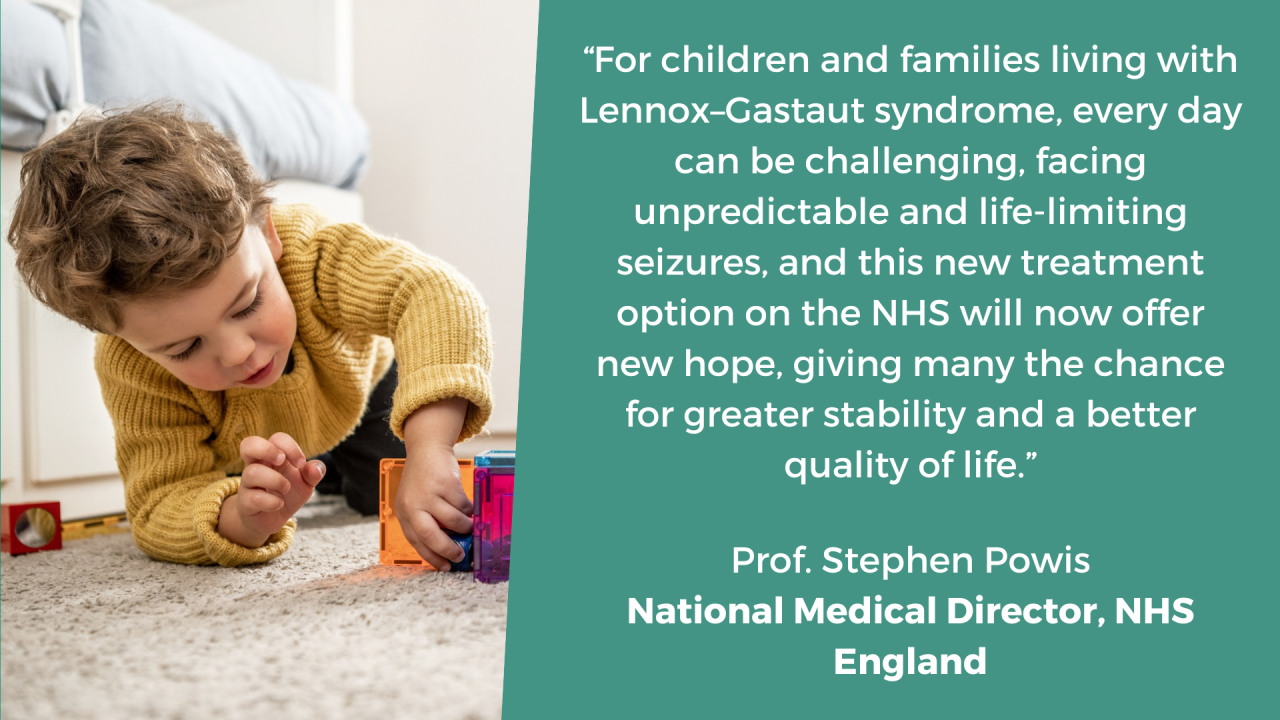Hundreds of children with severe epilepsy are set to benefit from a groundbreaking new treatment on the NHS, offering significant hope for them and their families.
Starting today, the National Institute for Health and Care Excellence (NICE) has recommended the funding of fenfluramine for NHS patients in England. This new drug is specifically approved for treating seizures associated with Lennox–Gastaut syndrome (LGS) in individuals aged two years and over.
Fenfluramine marks a significant milestone as the first non-cannabis-based treatment approved for LGS, a rare and lifelong form of epilepsy that is notoriously resistant to treatment. LGS causes frequent, unpredictable, and debilitating seizures, severely impacting the quality of life for affected children. These seizures often lead to cognitive issues, mobility difficulties, and an increased risk of injury due to sudden loss of muscle control.
NHS England’s National Medical Director, Professor Stephen Powis, said:
“For children and families living with Lennox–Gastaut syndrome, every day can be challenging, facing unpredictable and life-limiting seizures, and this new treatment option on the NHS will now offer new hope, giving many the chance for greater stability and a better quality of life.
“To have a proven, evidence-based new medicine that can be taken at home to help control and reduce their child’s seizures, and for example lower the risk of them experiencing injuries and needing to go to hospital, is fantastic news for hundreds of families.
“Fenfluramine will offer a vital alternative for those who can’t tolerate existing cannabis-based treatment and the fast-tracking of this treatment to be available from today is another example of the NHS’s commitment to ensuring access to the best therapies that deliver real benefits to patients as well as value for the taxpayer.”

Fenfluramine is administered as an oral liquid medicine, with dosages tailored to each patient's weight. The drug works by increasing serotonin levels in the brain, which helps to reduce seizure activity. Clinical trials have shown that fenfluramine can reduce the frequency of drop seizures by an average of 26.5%, a significant improvement compared to the placebo group. Additionally, more than a quarter of patients experienced a 50% or greater reduction in drop seizure frequency.
Approximately 60,000 children in England live with epilepsy, and it is estimated that between 1 and 2% of these children have LGS. Until now, the only NICE-recommended treatment for LGS was cannabidiol (Epidyolex®) with clobazam, approved in 2019. However, many patients do not respond to existing treatments or cannot tolerate clobazam due to its side effects, which include excessive drowsiness, sedation, irritability, and dependence with long-term use.
NHS England is leveraging its Innovative Medicines Fund to fast-track fenfluramine to eligible patients, reducing the wait time by three months. This is the second indication for which the NHS has commissioned fenfluramine, having already approved it for treating seizures caused by Dravet syndrome since 2022.
Lennox–Gastaut syndrome typically develops between the ages of three and five years, but today's approval extends access to all clinically eligible patients aged two years and over, including adults. This new treatment option offers a vital lifeline for families, providing greater stability and a better quality of life for those affected by this challenging condition.
Image credit: iStock



















